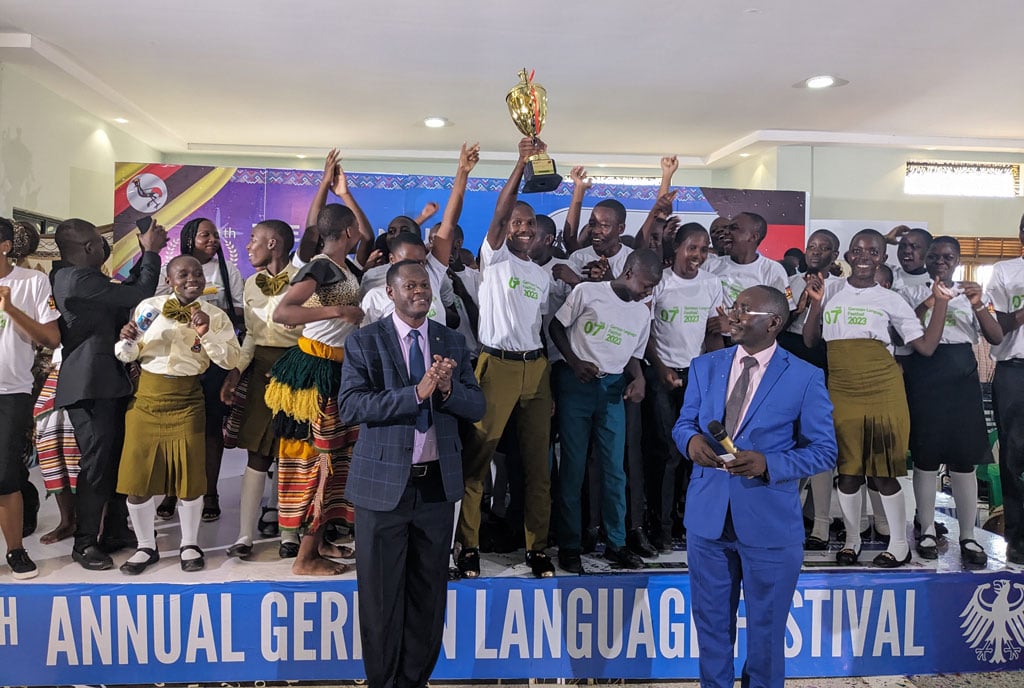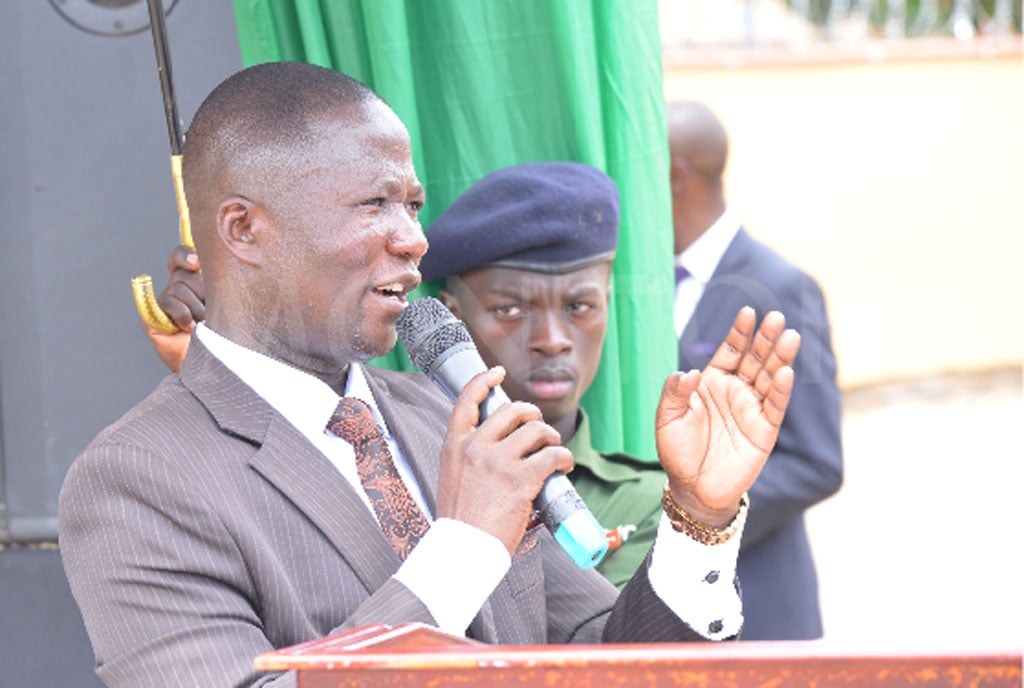Prime
Mbale SS shines in science subjects

Students of Mbale SS. The school is one of the best in eastern Uganda. PHOTO/COURTESY
What you need to know:
- The school is redirecting its focus on sciences so as to produce more doctors and science teachers.
Founded in 1954, Mbale Secondary School is one of the educational institutions in Uganda that has for years been the academic icon of the eastern region, especially in sciences.
The school registers the biggest number of science students at A-Level offering science combinations and has produced a number of medical doctors, engineers, agricultural officers, and teachers, among others.
The rise
Moses Buyera, the head teacher, says the school which started with a handful students, has for the past 50 years, grown into an academic giant with a student population of about 6,000.
“We are promoting Science led-strategy for social transformation. Most of the science students from this region come from Mbale SS. We have made a contribution to science-led strategy,” he says.
Buyera says the school was originally built for urban poor. Unlike today, the school was attended mostly by students of Asian origin and those from wealthy families, who could afford the high school fees.
“Over time, as the Indian population reduced, the school was opened to others to access education, but majorly the children of poor who could not afford expensive schools such as Bukedi College Kachonga (BCK),” Buyera says.
The educationist says in the 2021 UCE exam, the school registered 108 students in Division One while two students offering Physics, Chemistry and Mathematics (PCM) scored 20 points in A-Level and many more scoring between 19 and 17 points. In 2022, the school had 600 science students.
“For a school like ours, it is a blessing to compete with Uganda Martyrs SS Namugongo, St Mary’s Boarding Senior Secondary School Kitende, Namirembe Hillside High School in Science subjects,” he shares.
Funds for science labs
Buyera says the school is redirecting its focus on sciences so as to produce more doctors and science teachers.
“This year we had to close the gate to stop admission. To us that is a positive development because while many schools are struggling to get enrolment, we have enough,” he says.
He, however, appeals to the government to invest more funds in the school to set up a modern laboratory.
“For instance, we have about 700 science students and about 300 from the arts yet have only 10 labs to cater to ICT, Physics, Biology, Agriculture, Chemistry and Technical Drawing (TD),” Buyera shares.
He said they intend to construct a girl’s hostel with a capacity of 2,000 to address the challenges of the girl child.
“The school also plans to renovate staff houses, increase the space for science class roomsand construct a girl’s hostel,” he said.
He says the school is overwhelmed by inadequate staffing, funding and furniture among other critical challenges.
Great performance
Steven Masiga, the director Makerere University Mbale campus, who did his teaching practice at Mbale SS says the school has a good record.
“The school used to host the best teachers such as Dr Tanga Odoi, now NRM chairman electoral commission, amidst very difficult conditions,” Masiga, says.
Edward Mashate, an old boy (OB) and director Greenhouse Tourism Agency (GREHTA), says Mbale SS by its historical background, was built to deliver fully fledged science teachings in the field of Chemistry, Biology and Physics.
“It became one of the leading secondary schools in providing education to Asian and senior civil servant families in the early 1960s and has struggled to preserve its performance,” Mashate says. Moses Okello, a nurse, says the school has inspired many children from eastern region into becoming responsible health workers.
Phillip Agama, a teacher at Namakwekwe Primary School in Mbale City, says when Sam Kuloba (now commissioner for secondary education), was headmaster from 2008 to 2017, the school academic performance improved.
Previously, the school performed poorly because of various factors ranging from the administration, demoralised teachers, to indiscipline among the students,” he says.
He says many science teachers were attracted to the school, and academic standards rose tremendously.
Monitor learnt that government has obtained funds from the African Development Bank to renovate and construct modern laboratory, computer room, administration and classroom blocks, a library, multipurpose hall and renovated staff quarters to address the urgent needs of Mbale SS at Shs4b.
The deputy head teacher, Francis Mwalye attributes better performance in academics to the good discipline among the students.
“In 2021, we had 500 students of science with a small number of Arts. We have been doing well in science subjects and our performance has helped the school to grow,” he says.
Agnes Chemutai, a retired Biology teacher and an old student of Mbale SS, says some of the existing permanent structures were built by the Indians although the former head teacher Kuloba, constructed most of them through lobbying,” Chemutai says.
Alumni
Some of the prominent old students include, senior resident judge Godfrey Namundi, Nathan Nandala Mafabi, MP Budadiri West, an accountant and lawyer, Francis Mashate, former executive director of the Uganda Bureau of Statistics (Ubos), former Minister of State for Trade, and former Bunghokho South MP Michael Werikhe Kafabusa,
Connie Nakayenze Galiwango, Woman MP Mbale City and Moses Musingo, assistant commissioner Ministry of Education and Sports.





